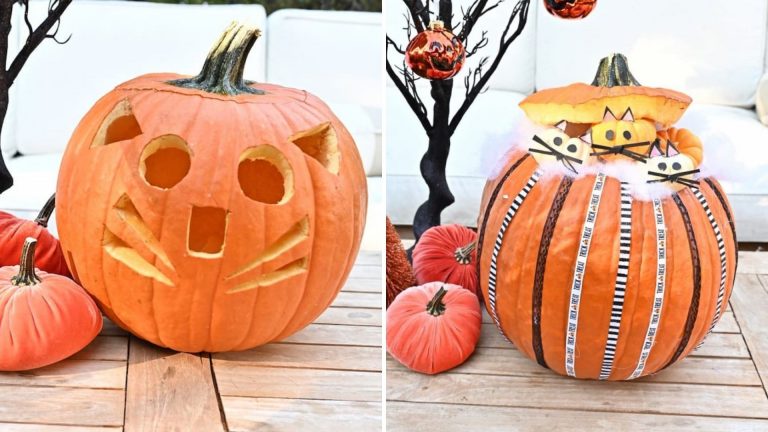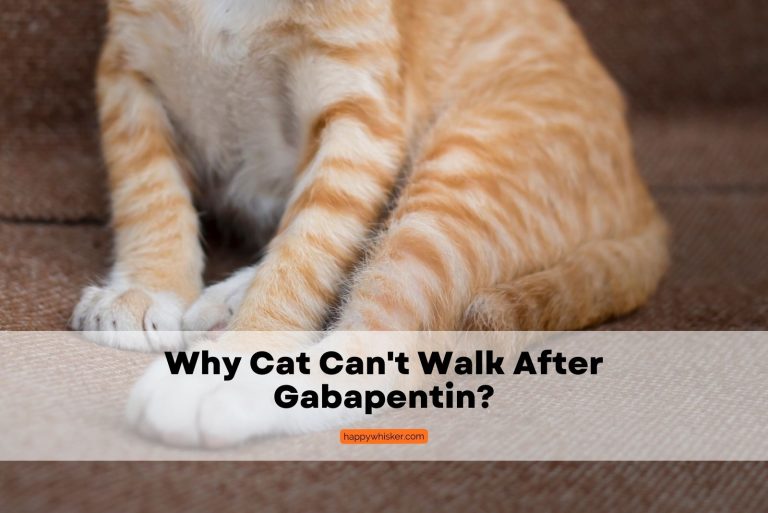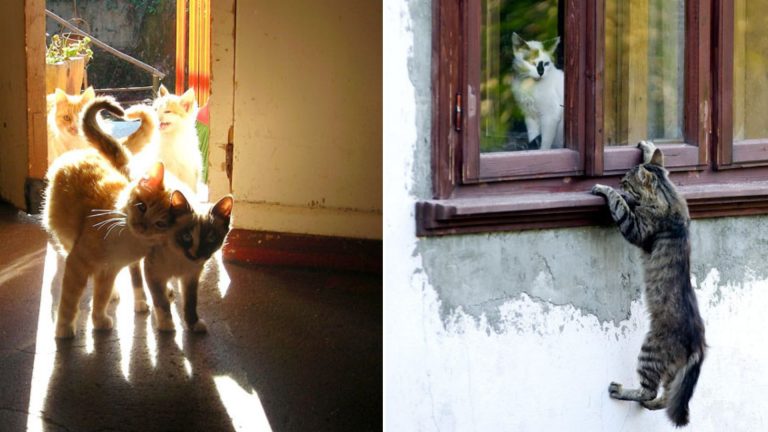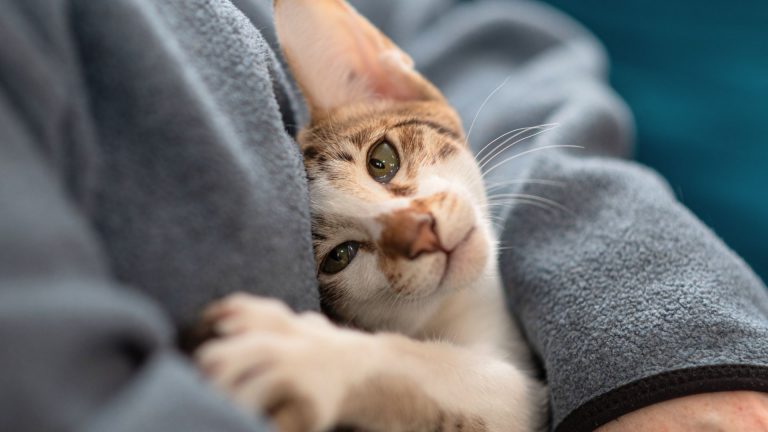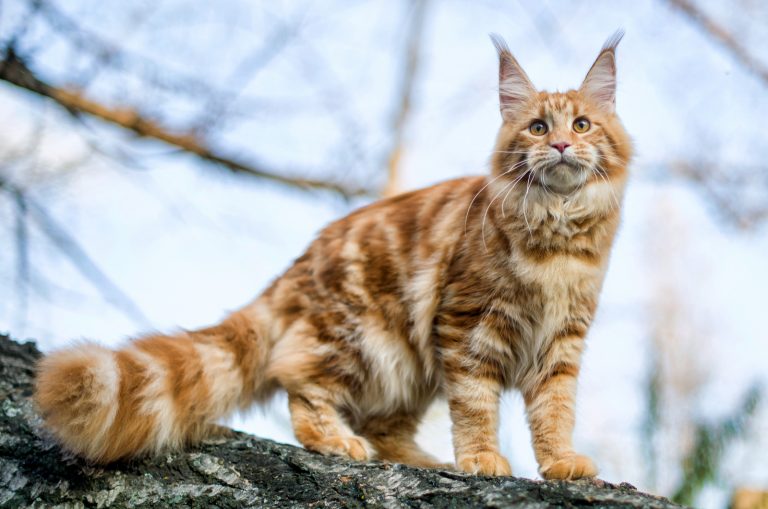Why Do Domestic Cats Growl? 8 Reasons For Cat Growling
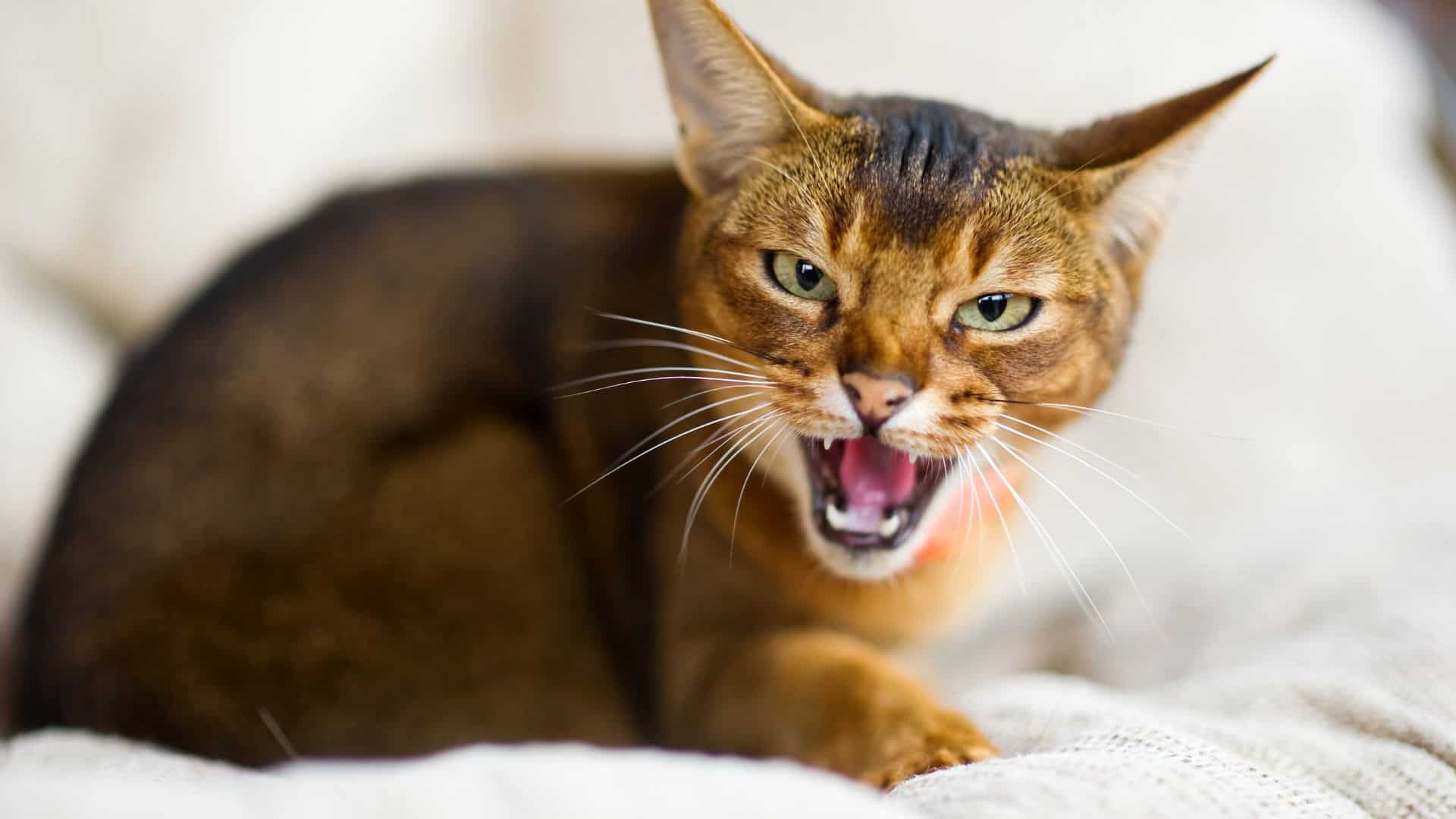
Why do cats growl? What exactly is a cat growling sound? These are simple questions every cat owner wants to know the answer to.
Growls frequently begin with an “mmm” sound before becoming low, lengthy, and rasping. A cat, like a dog, will curl its top lip and expose its teeth when growling.
Growling is often referred to as the “domestic cat’s roar” as it is produced in the same way that many cat sounds are: your cat pushes air through its vocal folds to produce a specific sound – in this case, a low, roaring vibration.
Let’s see what you can do to transform a bit of yowling and growling into sweet chirps and purrs.
Let’s Discuss What Cat Growling Is
A cat growl is a harsh and somewhat raspy sound made with an open mouth and it usually conveys negative emotions. The mouth is usually not as wide open as when making other intense sounds, such as yowls, screams, and howls.
Cat growls are usually accompanied by hissing sounds. Cat growls are used for aggressive and defensive interactions between cats, as well as towards humans and other pets.
Growls are gritty, harsh sounds that your cute kitty may make for several reasons. The cat makes this sound with its mouth slightly open. When a cat exhales slowly, the vocal cords vibrate as the air escapes.
It may begin with a vibration similar to purring or trilling and turn into a long, guttural sound.
Most cat owners are concerned about whether these sounds are normal for a domestic cat, so it’s good you’re here to learn about different reasons why cats growl.
This gives me the opportunity to bring back the “Oh, Long Johnson” HIT! Check it out:
This made me laugh then, and it still makes me laugh today! This amazingly beautiful tuxedo cat is growling, but it does so in a way that sounds like it’s speaking. Truly funny and amazing at the same time!
8 Reasons For Cat Growling
The following are the most common causes that can be behind your cat’s growling. Sometimes your cat isn’t ready to share its food, or they’re not ok with some new changes you’ve brought into your home, or sometimes it may growl to let you know that it’s in pain.
Learn more about these reasons, so you know how to deal with them if your cat starts to growl.
1. “Hooman, Do Not Approach Me!”
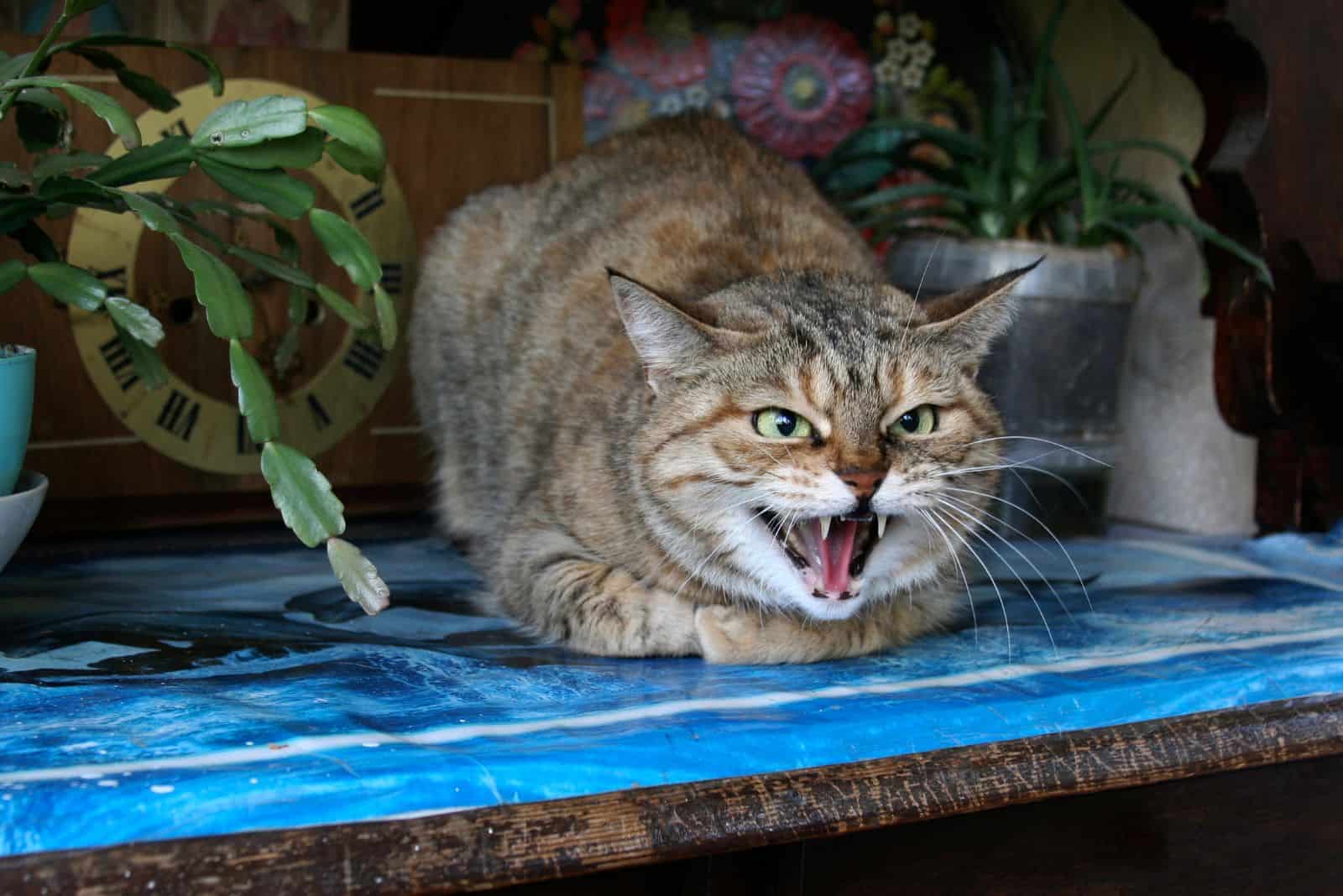
Cat growling can be interpreted as a warning sign for you to back off. It is most often directed to strangers, but it can also be a sign for you, like your cat is saying, “Human, don’t approach me!”
Just like with any pet, you’ll quickly learn your cat’s body language. Beware of their actions when your cat has its fur bristling, the tail position is pointing upwards, and it is also hissing. As I’ve mentioned, growls are most usually accompanied by hisses too.
2. “Growl! This Is My Territory!”
Cats are especially territorial. Territories are aggressively protected, with aggressive and unfriendly behaviors directed at intruders because they want to protect their belongings.
This manifests in intense vocalizations such as screams, hisses, and growls, as well as clawing and biting, especially if the cat is unable to hide from the person or cat they perceive as a threat.
Free, outdoor male cats aggressively defend their territory from other tomcats to prevent females from reproducing. At the same time, female cats will most often growl when they have kittens because they want to protect them.
3. “Wait A Meowment! That’s My Food”
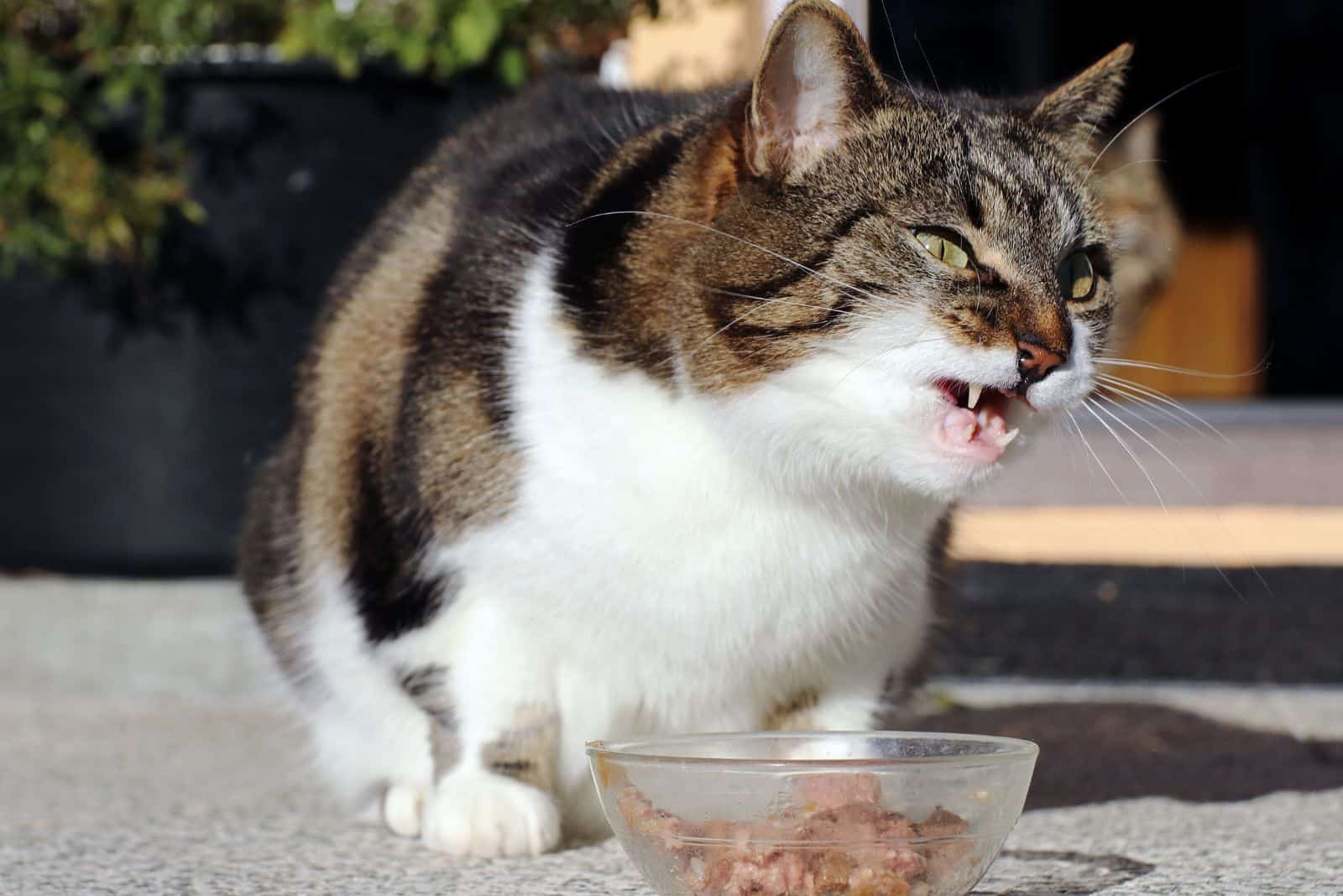
Certain cats make strange, growl-like sounds when eating, warning other cats not to steal their food. This is similar to certain dogs.
Although the precise meaning of this in felines is unknown, it frequently occurs when the meal is one of their favorites, such as when eating fresh liver (which most cats are crazy for) or high-value treats.
Reduce conflict in multi-cat households by offering enough meals for each cat and not feeding meals close to one another.
4. “I Don’t Adore This New Cat Of Yours”
Cats that live in groups are usually friendly to one another. So a new cat within a household, or possibly a cat that wanders through your yard, will typically be treated hatefully.
This is shown through aggressive vocalizations and body language such as growling, hissing, chasing, and a threatening stance to appear larger and fend off intruders.
When your cat growls, it could be an expression of dominance caused by its instinctive territorial feeling.
If you introduce your cat to a new pet cat in the same room, you should expect some growling and hissing. This could be because your cat is uncomfortable with a new pet in her territory.
5. Cats Will Also Growl Because Of Pain
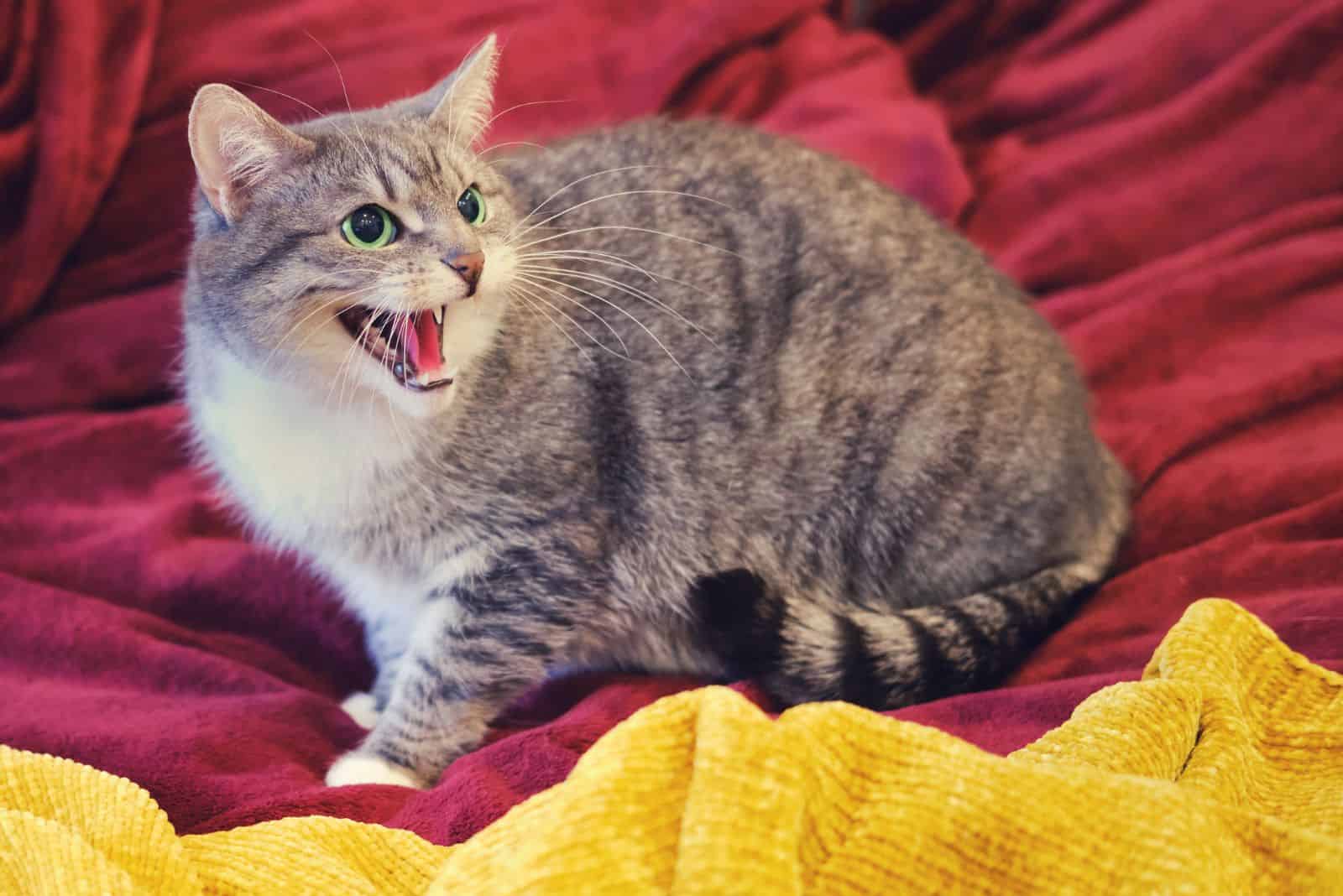
A cat in pain, whether acute or chronic, may growl or hiss when approached.
Cats are experts when it comes to hiding their pain, and will generally conceal any signs of illness or distress. Watch out for the following signs of illness or distress:
Loss of appetite, inactivity, increased sleeping, enhanced vocalization, reduced grooming, litter box aversion, and changes in their behavior towards you.
A cat may growl due to medical conditions such as osteoarthritis, oral infections, trauma, physical pain, urinary tract infections, inflammation, dental disease, or thyroid dysfunction.
6. Cats Growl Because Of Anxiety Or Fear As Well
Fear or anxiety is yet another reason cats growl. When confronted with social contact without the ability to avoid or escape it. A cat that has had inadequate socialization with people during kittenhood may act aggressively by hissing, growling, or biting to defend itself.
Physical contact with humans is likely to be hostile rather than positive for a particularly fearful cat, so it would be wise to have interactions with such cats monitored by an expert and kept as brief as possible to avoid scaring the cat even more.
Bringing a new kitten into your home, or leaving your cat in an unfamiliar place, can trigger fear and/or anxiety, which will cause your cat to act aggressively by growling at its owners or another pet.
7. Cats Sometimes Try To Growl The Stress Away
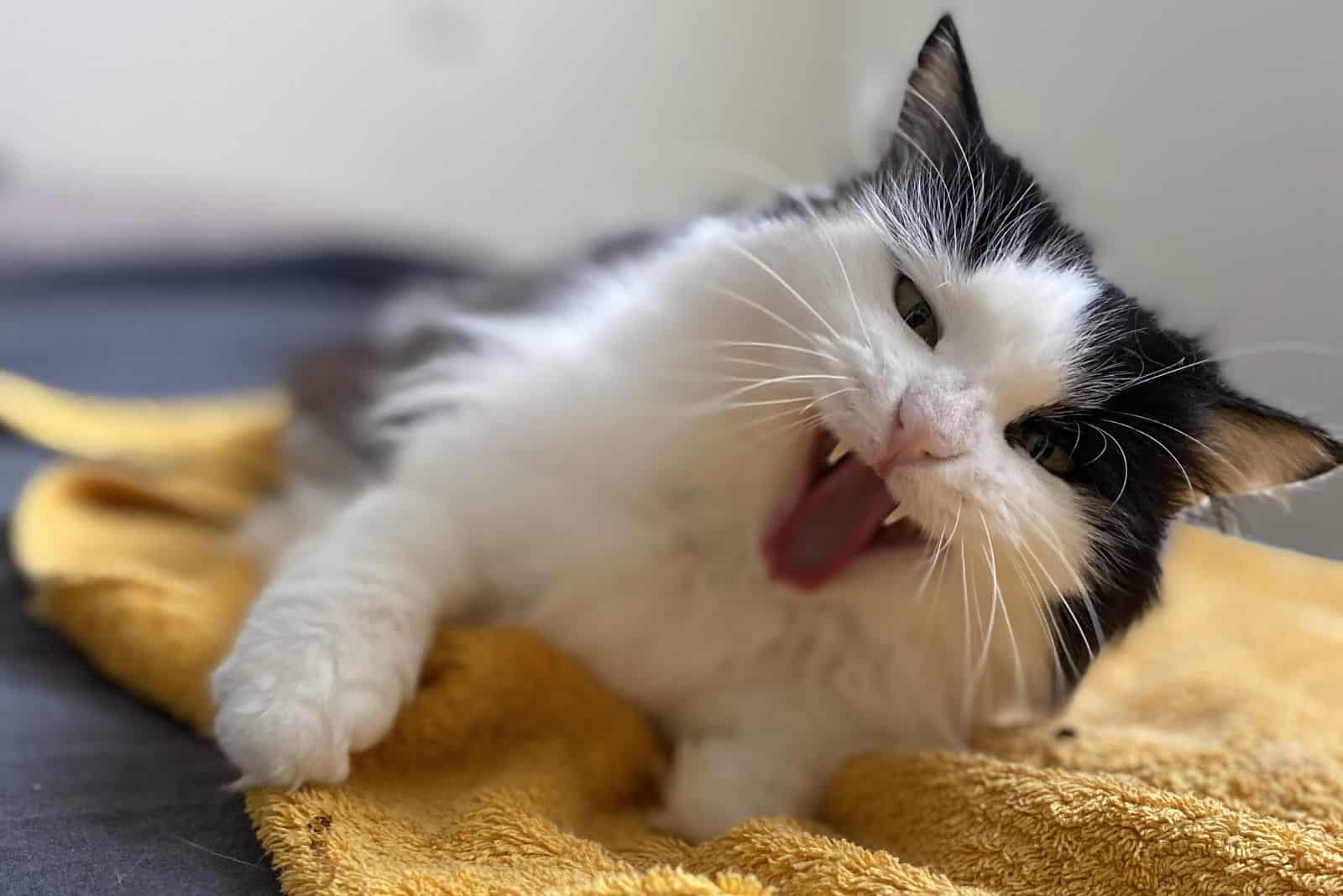
It may seem strange that your cat feels stress, given that their days are filled with tasty treats, cuddles, and naps on their fluffy soft cat pillows. You might think, what do they have to be concerned about?
A variety of circumstances can cause felines to become stressed or panicked. When they are afraid, in pain, or even lost, they can become stressed. If your cat suffers from stress, you should analyze your cat’s environment to figure out what causes them anxiety.
Each cat reacts differently to different circumstances. You should keep an eye on your cat’s behavior and make sure they are in a safe and stress-free environment.
8. “Hooman, I Am Annoyed”
An angry cat is the most unpleasant. Who knows what damage your kitty can do when they’re angry, unpredictable, and annoyed? When cats are annoyed, they growl at objects, other pets, and even your family members.
When your cat is angry or aggressive, it will frequently pull its ears back and have its fur bristling. Growling can be a warning sign that the person or thing that’s causing your cat’s irritation will be attacked physically if they do not step back.
If your cat growls frequently and their expression changes, it’s best to step back and give them some space rather than try to cuddle them. If they go from mildly irritated to full-on bare-teeth rage, leave the room and give your cat some privacy.
What To Do When Your Cat Growls
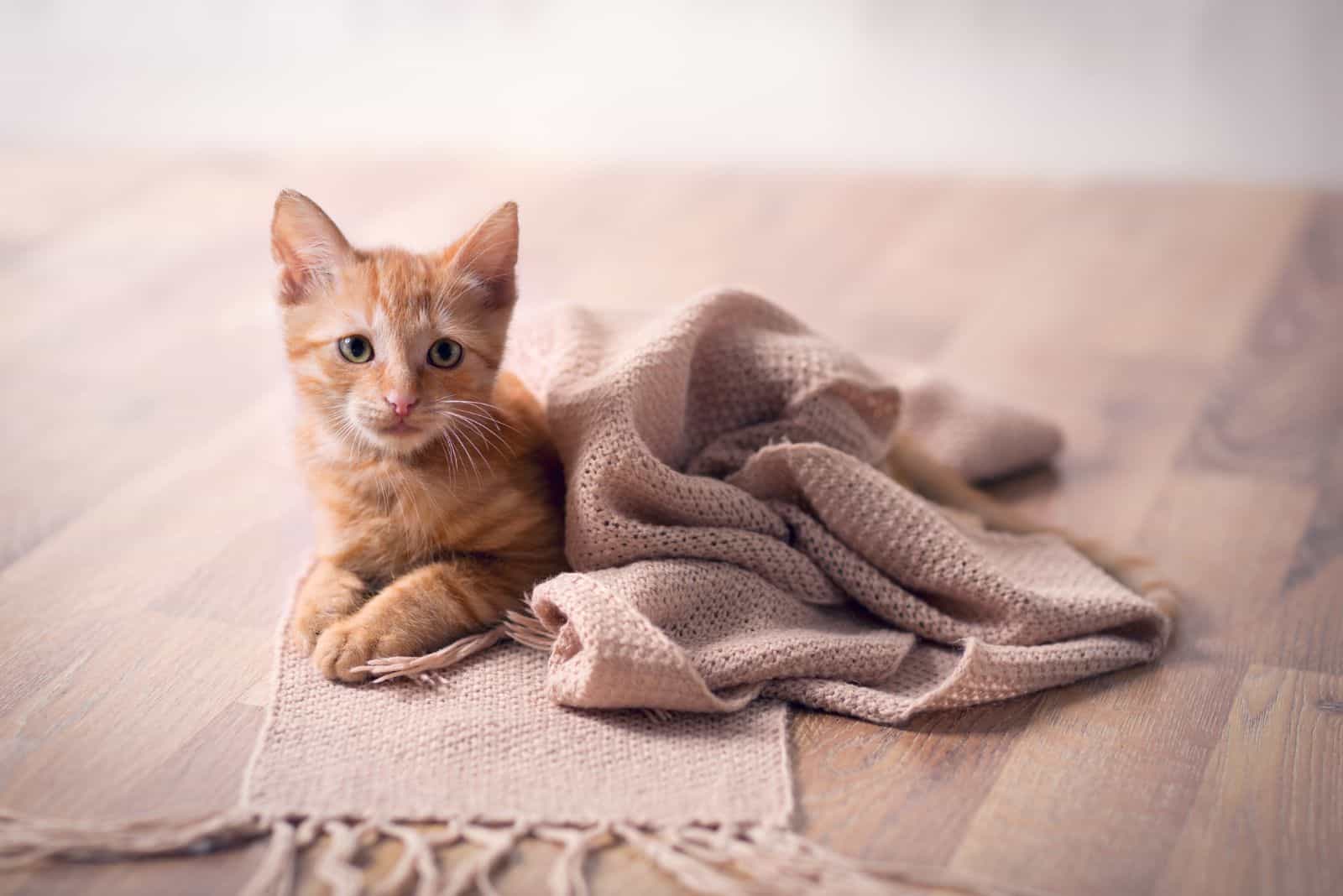
Understanding pet behavior can be difficult, but knowing what to do if you see your cat hissing and growling can help you deal with it and calm them down. Your cat’s natural behaviors include growling and hissing.
They are probably informing you that there is something wrong. It’s up to you to figure out what that is, so you can take the necessary steps to fix the problem.
As a result, the growling and meowing should stop, and you and your cat should be happier. If your cat is growling and hissing, use the following tips to help solve the problem.
Your Cat Needs Its Personal Space
If your cat hisses and growls at you, it is probably telling you to leave it alone. Make sure that you and other members of your household are listening.
The simple act of stepping back and leaving your cat alone can calm him/her and show that there’s a special private spot just for them.
Remember, hissing and grunting are natural ways for cats to communicate and are not always a signal that something is wrong. If your cat feels scared, threatened, or just annoyed, it may hiss as a warning.
Pay attention to this warning, as it is often followed by a growl. If the cat still feels threatened, it may strike, claw at you or bite to make sure the message is heard.
In most cases, stepping back is enough to calm the situation, and the cat should be able to calm down.
Try To Find Out Why Your Is Cat Growling
It’s unusual to see a cat hiss and growl for no reason. Growls and hissing sounds are usually caused by some problem or change in the cat’s environment.
If you can figure out what’s wrong, you can take steps to help your cat feel safe and stop those angry growls. Look for anything that changed just before the cat hissed or growled. Perhaps you spooked your cat out of its nap by reaching out to pet it.
Stressful situations, like the ones I mentioned, can contribute to cat growling. Even a trip to the vet can make your cat angry or stressed, which will cause it to growl.
Some cats learn and are aware when you plan to go to the vet, and they might growl when you try to put them in their carrier.
Slowly Introduce Any New Change
Any major change, such as welcoming a new pet into your home, can be stressful for your cat. When your cat is uncomfortable or afraid, it is more likely to hiss and growl at you and your new pet.
If your cat reacts to a major change, like a new pet, find ways to make the change gradual. Give your cat a private spot in the house so it can feel safe. Have a supervised, step-by-step introduction and, most importantly, be patient.
Even if your cat is familiar with the new pet or a new person, it may hiss or growl more than usual until it is completely confident that everything is ok and safe.
Consider Adding Pheromones
If your cat is growling or hissing because of stress, talk to your vet about using cat pheromones since they can help de-stress and calm your cat down. Pheromones come in several forms and are fairly easy to use.
Consider using a pheromone spray bottle that you can spray around the room your cat spends its time in. You can also consider using pheromones that come in a diffuser that is plugged into an outlet.
The diffuser automatically releases pheromones throughout the entire day to provide continuous support. This option is useful if your cat spends most of its time in a particular room.
Discuss this with your vet to find the best option for your specific cat.
Visit The Vet
Physical pain and illness can also cause growling and hissing sounds. If you can’t figure it out on your own, or if your cat suddenly starts growling for no apparent reason, you may need to see a veterinarian.
Your vet can perform a thorough examination, including palpating your cat’s body for signs of pain, which helps identify what may be causing the behavioral changes.
By addressing the cause and reducing your cat’s pain, your cat’s growling and hissing should also be reduced or gone altogether. Most of the time, cats are content and don’t need to hiss or growl.
However, when they do, they’re telling you something is wrong. You can get essential clues that you can use to fix the problem, such as giving your cat more space, calming them down, or having your cat checked for potential pain or health problems.
With a bit of time and effort, you can help your cat feel safer and happier and contribute to less hissing and growling, and other loud and awkward cat sounds.
Final Thoughts On Cat Growling
All in all, growling is yet another cat sound, and it isn’t dangerous or concerning. However, this is a unique sound that cats usually use to let us know something isn’t right.
Always listen to your cat growling, meowing, and so on since every cat sound or action can lead us to something.
In the case of growls, your feline friend might be telling you that something is hurting them, or that they’re afraid, or they might even be anxious about something. If you can’t find out the reason for your cat’s growling on your own, talk to your vet!
Even though cat growling might not be serious, it can sometimes refer to something serious, like some kind of health issue. So talk to your vet and turn the growls into soft and friendly purrs!
Related Articles:
• Reasons Why My Cats Meow Is Weak And Raspy & How To Help
• Why Is My Cat Meowing So Much? Causes & Ways To Stop It• Cat Swallowing A Lot – Symptoms, Conditions & Treatment

